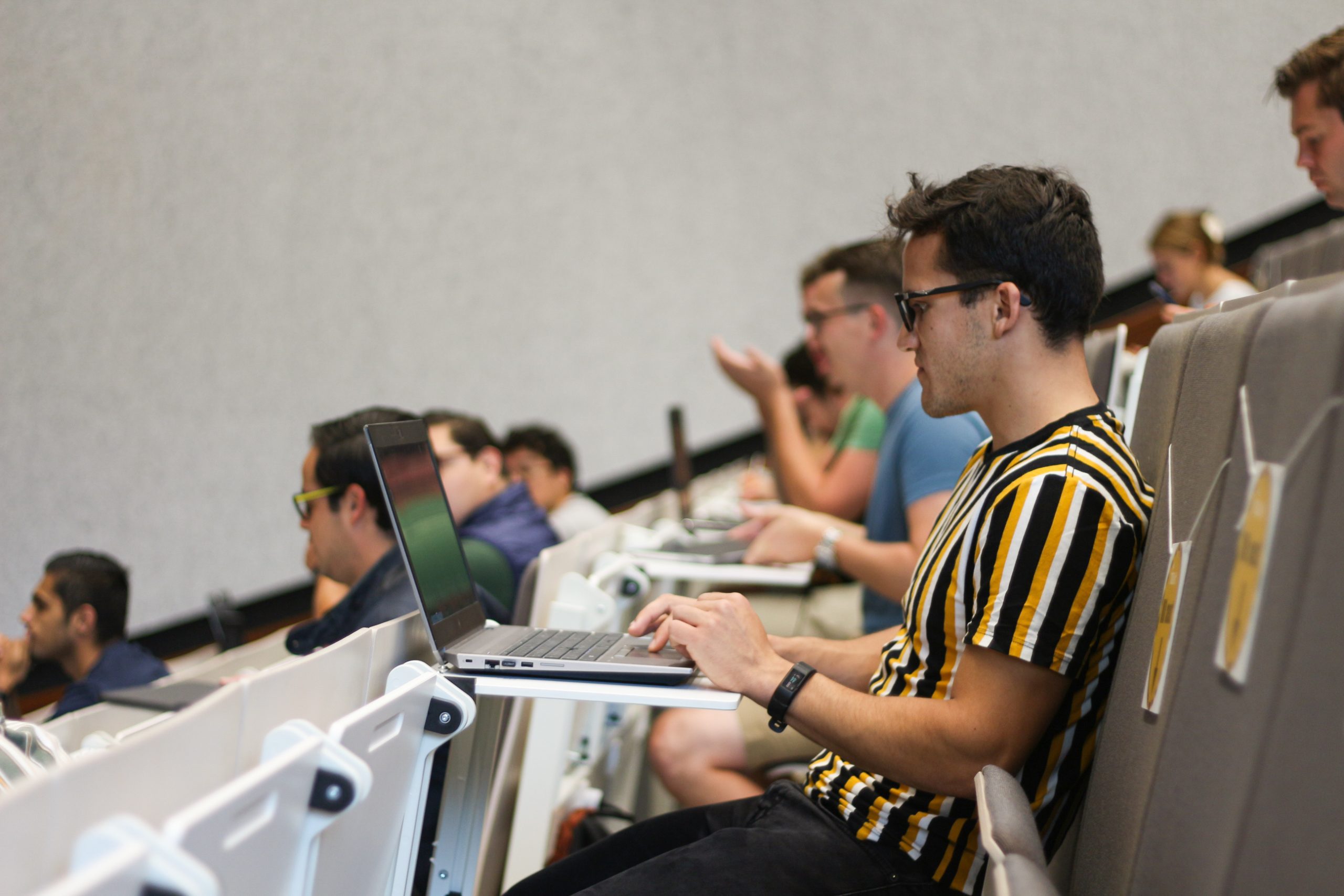Just as the final piece of the scheduling puzzle fell into place everything was thrown into disarray again: higher education was allowed to relax more Covid rules. Now what?
TU Delft will not draw up new timetables. (Photo: Justyna Botor)
The academic year has been given the go-ahead: you can pass in the hallway again without wearing a face mask and sit in lectures of more than 75 students. But universities aren’t going to be dispensing with online education overnight. How will things be run in the days ahead?
At TU Delft, this is not yet entirely clear. The university plans to proceed ‘pragmatically’, it reports on its website. ‘We are looking at where more is possible in the short term, but no new timetable will be drawn up.’ Nevertheless, TU Delft asks students to ‘keep a close eye’ on Brightspace. Any timetable changes they can find there.
Timetables: back to square one
At VU Amsterdam they’re happy with the relaxations, even if there’s a little catch: “The measures are always announced with short lead-time, which is asking a lot of a big organisation”, says spokesperson Wessel Agterhof. It’s therefore not possible to change the timetables any earlier than mid October.
If it is suitable, teachers can already admit more students into their classes.
Only after that date will it be noticeable to VU Amsterdam students that more face-to-face classes have been added. “Especially students in law and psychology will have something to celebrate when they can go back to lecture halls filled with students.” If it is suitable, teachers can already admit more students into their classes.
At Inholland University of Applied Sciences they are still busy catching up with all the changes to timetables on account of the easing of restrictions announced in August. It’s a “gigantic puzzle”, says spokesperson Karlien de Bruin. “We weren’t able to schedule face-to-face learning from day 1 for everybody this academic year.” She thinks the new easing of Covid rules is “very welcome” for students.
The University of Twente kept things open in their timetables to accommodate the new relaxation measures. “But the question remains whether we’ll be able to open everything up again”, says spokesperson Laurens van der Velde. The lack of classroom space with good ventilation could still be an obstacle. “But we’re really glad that we’re allowed to re-open.”
Too fast
Things are moving too fast for Rotterdam University of Applied Sciences. Ron Bormans, Chairman of the Board, writes: “Naturally we’re happy that ‘normalisation’ can now be completed”. But he would have set the speed of the rule relaxations in a lower gear; as far as he’s concerned, we shouldn’t be doing away with face masks in hallways.
‘We want to hold onto the good aspects of online education’
According to Bormans, it’s difficult as an institution to make your own rules “because then you have to go against the flow in society at large and thus become saddled with a big enforcement problem. We have to realise that relaxing rules now is a lot easier than imposing them again if needed at some future time.”
Vulnerable groups
Higher education institutions understand that students and faculty with health problems have concerns about easing measures so quickly. At Inholland they acknowledge that relaxing some rules can cause anxiety and are looking for solutions on a case-by-case basis. “Up to now we haven’t encountered it very much”, says spokesperson De Bruin.
“You don’t find fitting solutions by imposing centralised rules, but by entering into discussions with those involved”, University of Twente’s Van der Velde maintains. “Because we believe that on-campus teaching is indispensable there are limits to what is possible.”
New format
And yet the role of online education does not yet seem to be played out, even with the easing of restrictions. “I don’t think there’s a single educational institution that will be returning to the situation exactly as it was before the pandemic”, says De Bruin, who sees many advantages in online education at Inholland.
At VU Amsterdam, too, they’re still mulling over how to create a good balance between online and physical education. “In the coming months, in any case, we want to see a big increase in student presence on campus, because they’ve missed so much physical contact over the past 18 months”, Agterhof says. “But we want to hold onto the good aspects of online education.”
HOP/Josefine van Enk, Delta
Translation: Taalcentrum-VU.
Do you have a question or comment about this article?
redactie@hogeronderwijspersbureau.nl


Comments are closed.